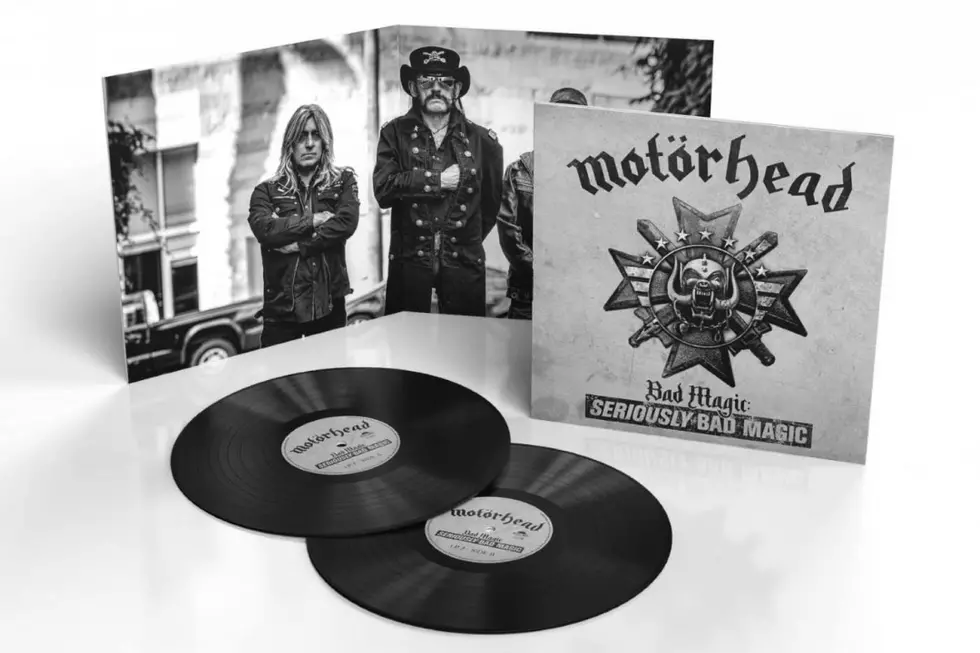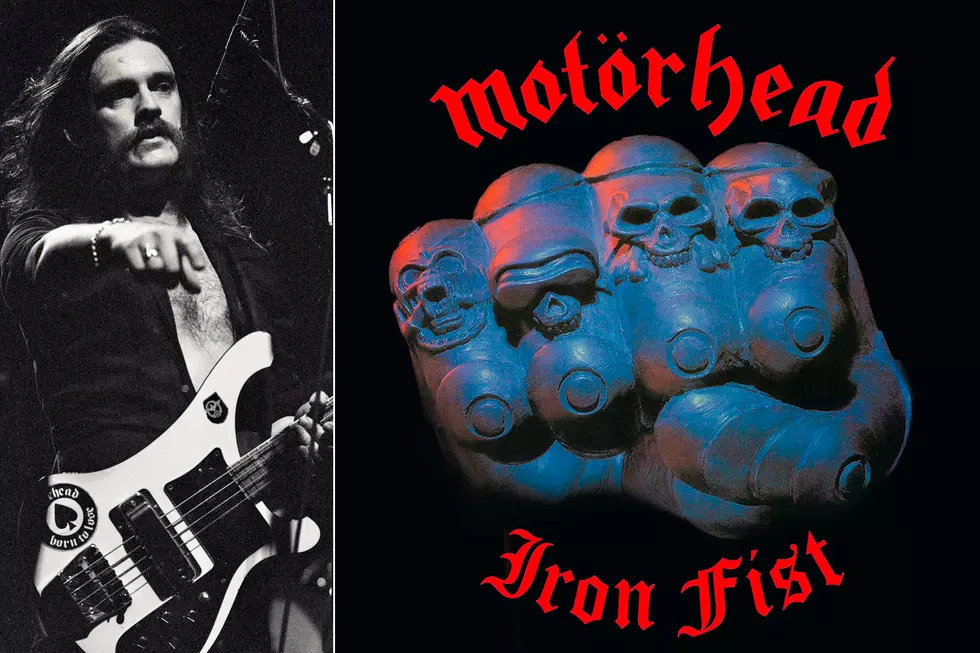
How Motorhead Began Their Climb With ‘Bomber’
Bombs once again rained down on London on Oct. 27, 1979. Thankfully, these weren't dropped by the fearsome Luftwaffe of WWII nightmares, but by the three, long-haired and wild-eyed hooligans behind Motorhead, who were armed with their third studio album, Bomber.
Barely six months had passed since Motorhead unveiled their powerful sophomore album, Overkill, which put the hard-rocking trio on a career fast-track that reflected the accelerated tempos driving most of their tunes. This was in stark contrast to the three or four years leading up to 1979, when events had moved at a snail’s pace for the band, almost stalling outright at one time or another.
Indeed, since 1975, Motorhead leader Ian ‘Lemmy’ Kilmister had been fighting to establish his post-Hawkwind musical enterprise: first dispensing with original Motorhead-bangers Larry Wallis and Lucas Fox so guitarist "Fast" Eddie Clarke and drummer Phil "Philthy Animal" Taylor could share in his fledgling band’s ignominious existence, characterized by playing poorly attended pub gigs, living in squats, and generally starving for their art.
Still, despite these persistent hardships, Motorhead still managed to survive long enough to put out their eponymous debut. After Overkill's solid showing, Lemmy, Eddie and Philthy's collective confidence had been battle-tested to such a point that not even critics who proclaimed them the worst band in the world could stop Motorhead from reaching No. 12 in the U.K. with Bomber.
The record packed just as much musical ammunition as its predecessor. Foremost was its high-flying title track, which quickly soared into the U.K. Top 40 and became a concert staple in the years ahead. But in order to sample the album closer's rewards, fans had to navigate an aerial battlefield filled with certified Motorhead favorites like "Sharpshooter," "Poison" and "Stone Dead Forever."
More intriguing still, not all of Bomber’s tunes flew by at their trademark breathtaking pace. It offers more slow-paced numbers than almost any other LP they've done since, including fierce and threatening grinds like "Lawman," the spine-chilling "Sweet Revenge" and "Step Down," which features a rare lead vocal by Clarke.
What listeners couldn’t guess based on these winning results is that Bomber’s rushed recording sessions had been fraught with challenges, ranging from mounting pressure to follow up Overkill with producer Jimmy Miller (famous for his work with the Rolling Stones), whose struggles with heroin addiction rendered him unreliable and often unavailable (his problems inspired album opener "Dead Men Tell No Tales").
Motorhead still turned in Bomber with a blend of expediency and excitement that would become their hallmark, and the next few years would see their once-endangered career undertake a full-throttle ascent to the rarefied heights of 1980’s inimitable Ace of Spades, and the U.K. No. 1 live album, No Sleep ’til Hammersmith.
Rock Stars Flipping You Off
Remembering Motorhead's Lemmy Kilmister
More From Ultimate Classic Rock









